The Coronavirus Turned a Rural County Into a Battleground for Millionaires
Joni Reynolds often wonders how things in Gunnison County got so out of hand. How did she, the top health official of a sparsely populated county deep in the Rocky Mountains, end up the target of national fury, and frightened enough to sleep with a gun on her nightstand?
Joni and her husband, Dennis, moved to Gunnison in 2015 to be closer to nature: the smooth waters of the Blue Mesa Reservoir; the craggy, snow-capped peaks of the Rockies; and the yellow aspens dotting the landscape in autumn. The 61-year-old registered nurse is thoughtful and self-effacing in conversation, the habit of a woman who knows her facts but is perhaps used to being spoken over. Reynolds had worked for years in a high-powered Denver job at the Colorado Department of Public Health, but she got tired of the bureaucracy, and sick of feeling so disconnected from the community. In her adopted mountain home, she could spend more time talking with people. During the week, she helped integrate the different sections of her new county health office; on Saturdays and Sundays, she went boating with Dennis and learned how to hunt elk. In decades past, Gunnison’s people had been ranchers and tradesmen, mostly, a mix of Blue Dog Democrats and moderate Republicans. But by the time the Reynoldses moved to the area, tourism had exploded, and the county’s quaint little towns had been settled by wealthy California liberals and Wall Street financiers who day-trade from their log-cabin estates and hit the slopes on the weekends. Other rich people, many of whom live in Texas and Oklahoma, buy second homes in the county for easy access to its wonders. For the first five years they lived there, Joni and Dennis enjoyed those wonders too.
Then the pandemic hit. Three days after the county confirmed its first positive case, Reynolds banned large gatherings, and a few days later, she limited nearly all in-person activity at local businesses. In Colorado, county public-health directors have the power to issue orders unilaterally in a crisis, and COVID-19 was certainly a crisis. Gunnison County soon had one of the highest per-capita rates of infection in the country. The hospital had no intensive-care unit and only two ventilators. That shortage, combined with the county’s high altitude, meant that doctors were transporting many of the sickest patients to Denver or Grand Junction, hours away by ambulance. On April 3, 2020, Reynolds issued an order that would become central to the ensuing months of conflict: People who owned a secondary property in Gunnison County shouldn’t come to town, and if they were already in town, they needed to leave. The county sent a postcard alerting out-of-towners that they could face steep fines and even jail time for coming to their vacation home. A sign went up on Highway 50 on the edge of town: GUNNISON COUNTY IS CLOSED. The decision had not been hard to make. Reynolds was responsible for the health of the county’s full-time residents, and temporarily banning the out-of-state millionaires seemed an easy way to limit community spread.
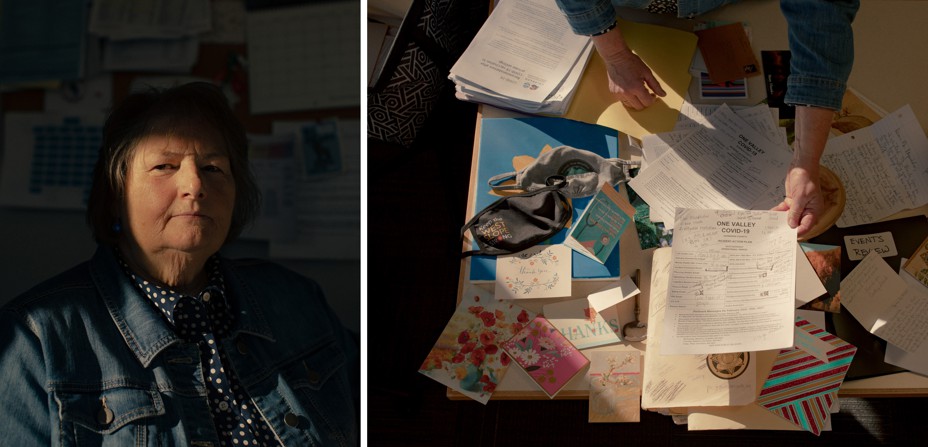
Reynolds’s decision had local precedent. A century earlier, as another pandemic swept across the world, Gunnison County sealed itself off. For three months, travelers could not enter, and residents who left town weren’t allowed to return. “I have caused a strict quarantine to be placed on Gunnison county against the world,” F. P. Hanson, the county physician, declared in the local paper. “Barricades and fences have been erected on all main highways near the county lines.” The full weight of the law was brought down on anyone in violation. Police patrolled Monarch Pass east of Gunnison, the county seat. They jailed two motorists who tried to enter the county, and fined another man trying to sneak in. By the time the pandemic had burned itself out, neighboring towns had lost thousands of people. Some lost nearly 10 percent of their population. But Gunnison County residents were largely spared.
Within hours of issuing her orders, Reynolds received the first irate emails about the ban on second-home owners. At first, she empathized with the letter writers, and responded to a few by explaining her thinking: The local hospital had few resources, she wrote, and high altitudes can make respiratory illnesses worse. But Reynolds stopped responding when she realized that the emailers could not be persuaded. “Welcome to our war,” one person from Texas wrote in the subject line. The writer went on to compare Reynolds’s actions to the Nazis’ Nuremberg Laws, which stripped German Jews of their citizenship and right to vote.
[Read: What’s really behind global vaccine hesitancy]
Even though it was springtime, often referred to as “mud season” by locals, some second-home owners wanted to flee the metro areas, where cases were rising, and wait out the pandemic in mountain luxury. They believed that Reynolds was overstepping her authority, depriving them of their right to their own—highly taxed—property.
More emails arrived over the next few days and weeks, from county residents and second-home owners alike. Most wrote to say that her rules were unconstitutional, and some threatened to sue. An alarming number of people compared her to Hitler. At least a few said they hoped that she would die. Reynolds forwarded most of the hate mail to the county attorney for review. Sometimes, right after waking up, she would think about quitting. It would be so nice, she’d think, to go back to bed. But she never did. “If not me, who?” she would ask herself. “I signed up for this job, and I owe the community this work.”
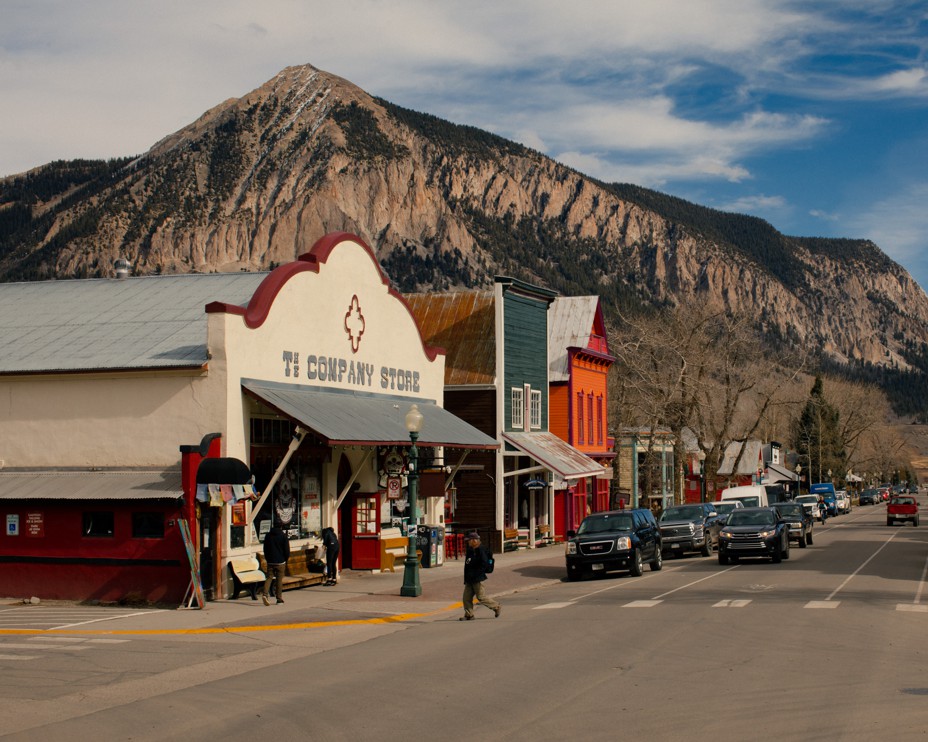
Within days, Reynolds’s job performance had become fodder for national news. On April 9, Texas Attorney General Ken Paxton sent a public letter to Reynolds. Texans were trying to access their properties, and she should let them, he reasoned. “As we face this challenge on behalf of our constituents, we as public servants must be careful to do so within the boundaries drawn by our Constitution,” read the letter, signed by Paxton’s special counsel. The lead lawyer for an entire state targeting a small-town health official felt like a nuking-an-anthill situation, and a bit random too. But an Associated Press review of campaign-finance records showed that Paxton had nine donors with property in Gunnison County, including an old college buddy who wanted access to his $ 4 million lakeside mansion. (Paxton did not respond to requests for comment.)
A few weeks later, James and Joyce Cillessen, a couple from the Denver suburbs who’d made their fortune in electrical contracting, filed a lawsuit against Reynolds and the county, arguing that her order preventing them from accessing their mansion and 75-acre property outside Gunnison was a violation of the Constitution. They hadn’t actually been planning to visit the county that spring, but the postcard warning them to stay away really pissed them off. “You can’t do that,” Jim Cillessen remembers thinking. “I’ve been coming to this area since 1967.” Cillessen says he personally spent about $ 20,000 on the lawsuit against the county, which he dropped after a few weeks. He doesn’t regret it. “It was the right thing to do. They were out of control,” he said. Lack of religion has fueled the breakdown of civility in America, Cillessen, a devout Catholic, told me. The county commissioners were “a bunch of wimps” about COVID-19, and Reynolds is a fanatic, he said: “She’s a big, fat, ugly woman with a lot of power, and she uses her power.”
[Read: Donald Trump and the American gentry]
By the time the Cillessens sued, Reynolds was already frightened and stressed. The attorney general’s letter and the lawsuit introduced an element of paranoia. “I’d never been on that national-news scene,” she said. “I was terrified that I was at risk of being killed. I thought this is the type of thing that a zealot constitutionalist might take upon themselves to make me an example.” She started looking over her shoulder at the grocery store, and keeping her shutters closed when she worked on her computer at home. The sheriff’s office wanted to intercept her mail, and officers set up a protocol for what she should do if she received any suspicious packages. A park-ranger friend began escorting Reynolds home from work. Dennis would meet them at the garage door with a loaded pistol. At night, the couple slept with the gun on their bedside table.
Worse for Reynolds was the realization that her neighbors and acquaintances were angry with her too. They were frustrated about the closures, and worried about how long their businesses could stay afloat. Beth Wyman, the co-owner of Wyman Woodworks, which builds custom furniture and cabinetry, bought a full-page ad in three local papers demanding that the county fully reopen. The owners of more than 200 local businesses signed on. In late April, 100 people, including many of those signers, gathered on Main Street to protest Reynolds’s restrictions. Their bottom lines were taking a hit. Wyman, for example, estimates that 65 percent of her work is done for second-home owners. She created a private Facebook group called “Save Gunnison County’s Summer and Businesses,” where she and other locals complained about Reynolds. A few members referred to Reynolds and other officials as “traitors” to the county, and at least one person suggested in comments that they take up arms and forcibly remove county leadership from their offices. One person posted a picture of a new face mask they’d acquired: This mask is as USELESS as Joni Reynolds, it said. “Why hasn’t she been shunned and ostracized?” one member asked, before suggesting “a constant visit” to Reynolds’s neighborhood.
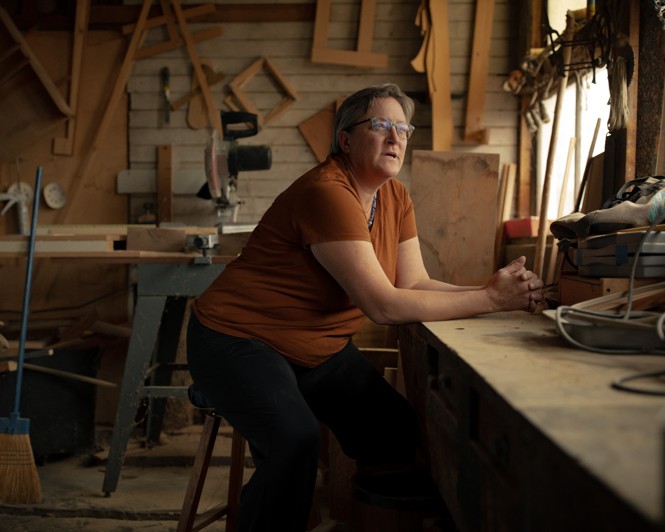
Wyman was easily the most outspoken of Reynolds’s local detractors. In posts on Facebook, she often referred to the public-health director dismissively as the “Health Nurse.” “I went at her hard,” Wyman told me this fall. “But it was because she was overstepping her bounds.” Reynolds and the Democratic county leaders are used to getting their way because the politics of the area has been shifting in their favor, Wyman said. Most voters in the county are unaffiliated with any political party. But 15 years ago, Republicans outnumbered Democrats. Now that ratio has flipped. Last year, Joe Biden beat Donald Trump in Gunnison County by 30 points. Democrats nationwide have ignored the Constitution and acted like “omnipotent moral busybodies” throughout the pandemic, Wyman told me, quoting C. S. Lewis. “They think it’s their job to hire a bunch of smarty-smart pants to just rule over us.” But Wyman, who has formed close bonds with other locals on Facebook, is grateful that the pandemic brought the area’s conservatives together. That solidarity, she said, has empowered them to keep pushing back against those busybodies.
Around Memorial Day of 2020, businesses were allowed to reopen at a limited capacity, and in June, nine weeks after instating the ban on second-home owners, Reynolds updated her orders to welcome them back. Cillessen claims credit for influencing the change, but Reynolds and the county have maintained that his lawsuit had nothing to do with it. That summer, tourism boomed. Local restaurant, retail, and hotel revenue hit an all-time high. Still, the backlash against Reynolds continued. Candidates emerged to challenge the two Democratic members of the three-person Gunnison County commission, which technically oversaw Reynolds and the public-health department. “It was clear,” Reynolds said, “that the intent was to rein me in or get rid of me.”
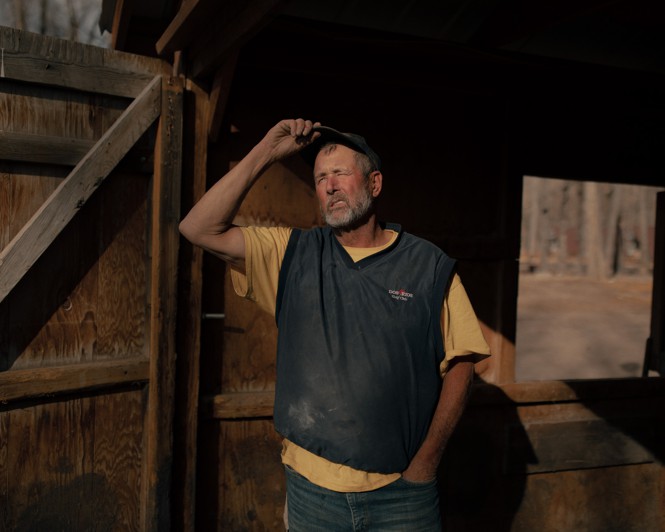
Most people in town know Dave Taylor as “KOA Dave” because he runs a Kampgrounds of America on the edge of Gunnison that doubles as a petting zoo. He’d supported the second-home owners from the beginning, arguing that county leaders, and especially Reynolds, were violating the Constitution. Taylor, who was also a part-time school-bus driver and a member of the county school board, was not exactly a coronavirus skeptic; he simply believed that banning the second-home owners was the wrong call. Out-of-staters pay a big chunk of the county’s property taxes, he told me. They’d helped finance a whole array of local projects, including the art center and the new therapeutic recreation program. The postcard that the second-home owners received should have been phrased as a polite request to stay home, rather than a demand, Taylor thought. If he were a county leader, he never would have approved those rude notes. In late April, he declared his candidacy for a seat on the county commission. The two Democrats on the body, Jonathan Houck and Liz Smith, were both up for reelection.
Right around that time, Jim Moran, a former private-equity manager from Texas who vacationed at a $ 4 million residential property in Mount Crested Butte, was getting ready for action. He seemed furious about what he saw as the county’s overreach. (Moran declined to be interviewed.) He quickly earned a reputation in the county as a rabble-rouser, according to the people I interviewed. He posted occasionally about plans to push back against the county’s rules in the “Save Gunnison” group and in another private Facebook group for second-home owners. Members of the latter group said they felt like “outcasts,” and they made a list of locals whom they considered ungrateful for the resources they bring to the area, according to reporting from High Country News, which covered the commissioner’s race earlier this year. The second-home owners were happy to have Taylor, a good-natured local, supporting their position, and they soon threw their support behind another candidate—a longtime Gunnison County resident named Trudy Vader—for the other seat. Led by Moran, the Facebook-group members formed a super PAC to influence the race, calling it GV2H: Gunnison Valley Second Homeowners.
Reynolds sometimes read about the campaign in the local paper, or heard details from friends, but otherwise, she tried not to pay much attention. It was unsettling to know that her decisions—and even her continued employment—were the subject of such heated political debate. At one campaign event, Taylor vowed that if he won, he’d be in Reynolds’s office every day, looking over her shoulder, Reynolds told me. (Taylor said he does not recall saying this.)
In July, Moran welcomed Taylor and Vader to a party at the 7,000-square-foot Mount Crested Butte manor, alongside a few other wealthy homeowners with similarly opulent estates. Then-Senator Cory Gardner, a Republican who later went on to lose to the Democrat John Hickenlooper, attended the gathering too, in a show of support for Reynolds’s critics and their quest for justice. “That evening, Moran’s street and adjacent roads were filled with Teslas, Porsches and custom Jeeps with lifted suspensions. Two young men in Trump 2020 masks and ballcaps directed traffic at the entrance to Moran’s block,” High Country News’s Nick Bowlin wrote. Ahead of the November election, the GV2H super PAC had distributed banners in support of Vader and Taylor throughout town: on the Miller Furniture building on Main Street, outside Traders Rendezvous on Tomichi Avenue, and along Highway 135 between Gunnison and Crested Butte.
[Read: Trump’s next coup has already begun]
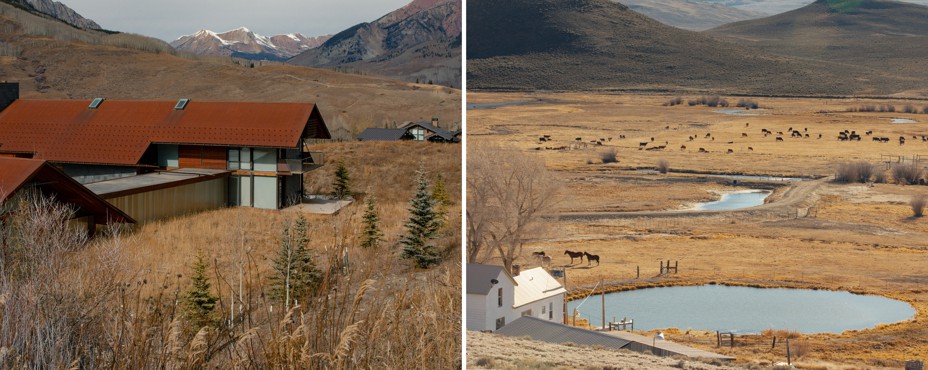
The fundraiser, and all of the mingling, backfired. Some people in Gunnison County started to view the relationship between the candidates and the PAC as unseemly. Locals questioned how Taylor and Vader were being influenced by Moran and his gaggle of wealthy out-of-towners. One person wrote a letter to the editor of a local paper calling their association “disturbing.” Taylor vehemently denies that he was swayed by PAC members’ money; he’d stuck to a maximum campaign donation of $ 100 a person, he told me. But he knows how it all looked. He acknowledges now that Moran was not exactly a likable figure. “Jim Moran was a flamethrower, and he was so bad for my campaign,” Taylor said. “He was too brazen. He was too threatening.”
The race had developed a surprising callousness. It was Jonathan Houck’s third run for county commissioner. Before that, the Democrat had served as mayor, and before that he’d taught high school. “I’m not overtly political,” Houck told me. “The work we do here is not those big issues that divide us” at the federal level. Commissioners deal with plowing roads and issuing building permits. But the pandemic’s public-health orders had sent people sprinting to their partisan corners. Locals whom Houck had known for 30 years accused him of trying to shut down their business and ruin their livelihood. They screamed in his face when he stopped by to pick up takeout. “There were some people I won’t be friends with after this,” Houck told me. “There are a couple restaurants where I’m like, ‘Wow, I guess I’ll just never eat there again.’”
The national attention, the constant emails, and the banners along Highway 50 might have suggested that Reynolds’s critics were in the majority in Gunnison County. But on November 3 of last year, with more than 90 percent of eligible voters participating, Taylor and Vader were trounced in the commissioner’s race, each losing by at least 20 points. The result provided some assurance to Reynolds that most of the community was behind her, even if she hadn’t always felt it. In this time of coarseness in American politics, it can be easy to convince yourself that the loudest voices are the most representative, even if you know, intellectually, that they aren’t. You may understand, for example, that more than 70 percent of American adults are vaccinated or that most people wear their mask on an airplane without fuss, or that many Americans have friends who don’t share their political beliefs. But when you’re scanning social media or sifting through your hate mail, those facts can be harder to recall.
Reynolds doesn’t spend a lot of time thinking about the drama of the past year. A while ago, she was asked to participate on a panel to reflect on the first few months of the pandemic. To prepare, she went to her closet and pulled out a box of notes she’d kept from spring 2020: all of the kind and terrible letters she’d gotten; Post-its to herself about hospital capacity and EMS transfers; words of the day she had used to motivate her staff. She made it through only a week of memos before she had to put the box away. Seeing those papers again had immediately made her feel panicky, transporting her back to those days of uncertainty and paranoia. Even now, she told me, “I’m not ready to sift through it.”
This autumn, Beth Wyman and others in town have had a new pandemic development to fume about. Students in Gunnison County public schools began the academic year without a mask mandate. But after nearly two dozen kids got sick with COVID-19, the school board, along with superintendent Leslie Nichols, reinstated a mask requirement. Dave Taylor, starting his second year on the school board, voted against the renewed mandate, while the other present members supported it. Frustrated parents and angry locals began showing up at board meetings to protest the change. A small group of them threatened to launch a recall campaign to replace the members who had voted to require masks. Another handful of people brought a lawsuit against the district. Such vitriol is a sad but unavoidable development, Wyman told me. “I’ve known Leslie since we both lived in Lake City,” Wyman said of the superintendent. “I don’t want to be mad at her, but dang it, let’s get those kids breathin’ free.”
[Read: Why are Americans still wearing cloth masks?]
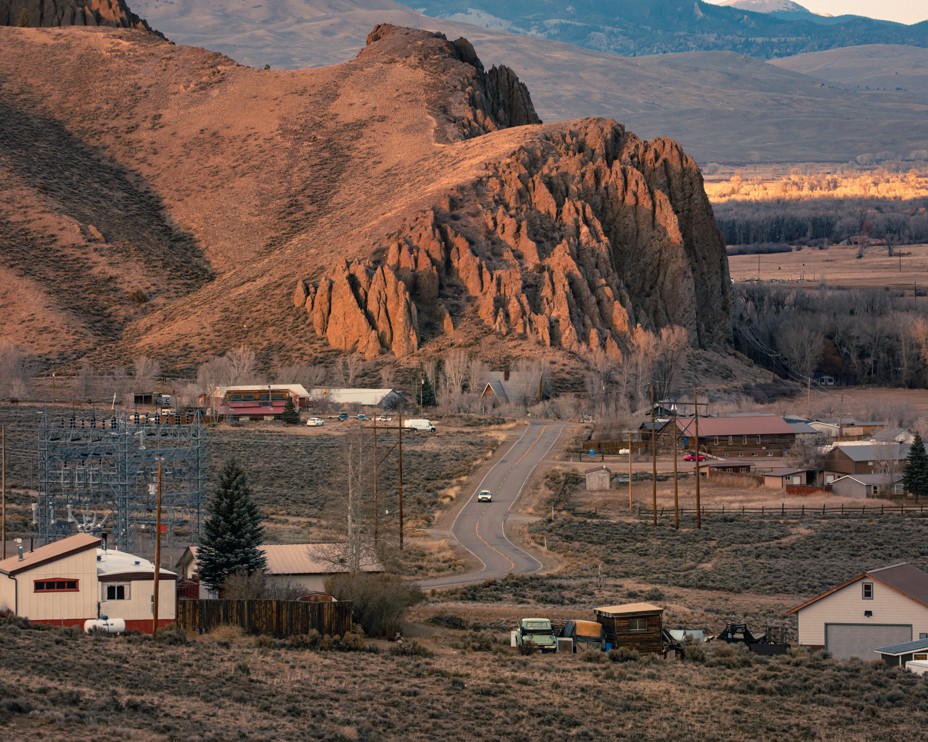
Taylor was happy to push back against pandemic restrictions a year ago. But he’s not eager for another fight. During a visit to his campground in September, as big-bellied goats butted against our legs, Taylor said that he’s moved on with his life. He’s disappointed to have lost the race, but nowadays, he seems to view his role in the community as a kind of peacemaker. After feeding his pigs, Taylor invited me to a game of liar’s poker at the Palisades, a local bar and grill. He plays every week with a group of friends, two liberals and three conservatives. Occasionally, they argue about politics during these game nights, but mostly they trash-talk one another and take turns buying rounds of beer. After I won a hand, the five men sang a song calling me a “horse’s ass.” Later on, they made me guess which one of them hadn’t gotten the vaccine; I guessed wrong.
As we played, Taylor said he was shocked that anyone in the community would try to recall his fellow school-board members over the mask mandate. Sure, he disagreed with the requirement. But the members who’d voted in favor were simply trying to protect students. He’d just submitted a column in the Gunnison Country Times arguing as much, and urged me to read it. He understands now how Reynolds probably felt throughout much of the past 18 months, he told me. She was in “the same no-win, damned-if-she-does, damned-if-she-doesn’t situation that we are as a school board.” These days, Taylor mostly has praise for the public-health director—especially after watching her lead the county’s smooth vaccine rollout. He hasn’t seen Reynolds in a while. But I asked him what he might say to her if he ran into her at the Safeway or on Main Street. He thought about it for a minute. “I’d probably say, ‘Joni, you’ve had a very tough job, and you did the best you could.’”
<
p dir=”ltr”>After the game was over and we’d said our goodbyes, I texted Taylor to thank him for the poker invite. “Happy you joined us,” he replied. “Whatever differences we have politically, each of us would go to great lengths to help the other. That is the true spirit of Gunnison County.”
Politics | The Atlantic
